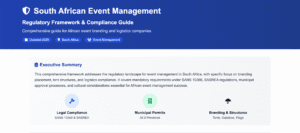Event management plays a crucial role in the success of any event, ensuring that it is well-planned, coordinated, and executed. Whether it’s a corporate gathering, a charity gala, or a social event, event managers possess the skills and experience necessary to create and execute successful events, ensuring a maximum return on investment for their clients. The importance of effective event management cannot be overstated, as it can lead to increased corporate support, brand awareness, and client engagement.
Successful event management involves careful planning, coordination, risk management, and post-event follow-up. Event planners must consider the concept, coordination, control, culmination, and conclusion of the event to ensure a positive outcome. By utilizing efficient resource utilization, event managers can optimize resources, save time and money, and contribute to the overall success of the event.
One of the key elements of event management is event marketing. The power of event marketing cannot be underestimated, as it plays a vital role in attracting attendees and promoting the event. Event managers strategize and execute marketing techniques to create buzz and generate interest, resulting in a higher attendance rate and a more successful event.
Another important aspect of event management is the enhancement of brand awareness and engagement. Well-executed events create a positive brand image and provide opportunities for businesses to connect with their target audience. By providing a memorable and enjoyable guest experience, event managers can strengthen client engagement and loyalty.
The role of risk management in event management is also crucial. Identifying and mitigating potential risks is essential to ensure the smooth running of an event. By addressing and managing risks effectively, event managers can minimize disruptions and ensure a successful and safe event for all attendees.
Post-event follow-up and analysis are equally important in evaluating the success of an event. Event managers can assess the return on investment and gather valuable feedback from attendees, sponsors, and stakeholders to identify areas for improvement and make informed decisions for future events.
Event management software, such as CRM tools, has revolutionized the industry by streamlining and enhancing event management processes. These tools automate tasks, provide valuable insights, and facilitate efficient event planning and execution.
In conclusion, effective event management is vital for the success of any event. It enables businesses to grow, enhance their reputation, and convert prospects into customers. By implementing strategies such as proper planning, coordination, marketing, risk management, and post-event analysis, businesses can maximize their event’s potential and reap the benefits of a successful event.
- Event management plays a crucial role in the success of any event, ensuring it is well-planned, coordinated, and executed.
- Effective event management leads to increased corporate support, brand awareness, and client engagement.
- Proper planning, coordination, risk management, and post-event follow-up are essential for successful event management.
- Event marketing is a powerful tool for attracting attendees and promoting an event.
- Well-executed events enhance brand awareness, client engagement, and create a positive brand image.
The Role of Event Planning
Effective event planning is essential for creating a solid foundation for a successful event. Whether it’s a corporate conference, a wedding reception, or a music festival, meticulous planning and organization are crucial to ensure that every aspect of the event runs smoothly. Event planners play a significant role in bringing all the pieces together and transforming a vision into a memorable experience for attendees.
Event planning involves a diverse range of responsibilities, from initial conceptualization to the execution of the event itself. It encompasses tasks such as venue selection, budgeting, securing vendors, coordinating logistics, managing timelines, and ensuring that all necessary permits and licenses are obtained. These meticulous details may seem overwhelming, but they are vital to ensure a seamless and successful event.
One of the key elements of event planning is event coordination. This involves liaising with various stakeholders such as venue managers, caterers, entertainment providers, and audiovisual technicians to ensure that all aspects of the event are coordinated effectively. By overseeing these elements, event planners ensure that the event runs smoothly and eliminates any potential issues that may arise.
Event organization is another critical aspect of event planning. This involves creating a structured plan that outlines each stage of the event, from the initial concept to the final follow-up. By breaking down the event into manageable tasks and assigning responsibilities, event organizers can ensure that every detail is carefully considered and executed. This level of organization not only helps to streamline the planning process but also contributes to the overall success of the event.

Attention to detail is a crucial skill for event planners. It allows them to anticipate potential challenges, make informed decisions, and ensure that every aspect of the event is meticulously planned and executed. From selecting the perfect table setting to coordinating transportation logistics, every detail contributes to the overall success of the event. By paying careful attention to these details, event planners can create an unforgettable experience for attendees.
| Key Responsibilities of Event Planning | Key Skills Required for Effective Event Planning |
|---|---|
| Concept development and theme selection | Strong organizational skills |
| Venue selection and negotiation | Attention to detail |
| Budgeting and financial management | Excellent communication skills |
| Vendor management and coordination | Problem-solving abilities |
| Logistics and timeline management | Ability to work under pressure |
By mastering these skills and understanding the importance of thorough event planning, event managers can create exceptional events that leave a lasting impression on guests. From the initial concept to the final execution, every element of the event must be carefully considered and coordinated to ensure its success.
The Power of Event Marketing
Event marketing plays a vital role in creating awareness and generating interest in an event. It is a strategic approach that utilizes various marketing techniques to promote and attract attendees to an event. By implementing effective event marketing strategies, event managers can maximize the reach and impact of their events, resulting in a successful outcome.
One of the key elements of event marketing is developing a well-defined event strategy. This involves identifying the target audience, understanding their needs and preferences, and crafting a compelling message that resonates with them. Event managers use market research and data analysis to gain insights into their target market, enabling them to tailor their marketing efforts for maximum impact.
Event strategy also encompasses event execution, which involves the implementation of marketing campaigns across various channels. This can include social media promotions, email marketing, content creation, and online advertising. Effective event execution ensures that the event reaches a wide audience and creates excitement and anticipation among potential attendees.
When it comes to event marketing, it is essential to track the results and measure the return on investment (ROI). This can be done through various analytics tools and metrics, such as ticket sales, website traffic, social media engagement, and attendee feedback. By analyzing the data, event managers can identify what worked well and what can be improved for future events, allowing them to refine their marketing strategies and achieve even greater success.
| Key Benefits of Event Marketing |
|---|
| Increased brand awareness |
| Targeted audience reach |
| Lead generation and conversion |
| Enhanced attendee engagement |
| Opportunity for networking and collaboration |
“Event marketing is all about creating a buzz and generating excitement around your event. It allows you to connect with your audience on a personal level and create memorable experiences that leave a lasting impression.”
– Event Marketing Expert
In conclusion, event marketing plays a pivotal role in the success of any event. It not only creates awareness and generates interest but also provides opportunities for brand building, lead generation, and attendee engagement. With the right event strategy and execution, event managers can maximize the impact of their events, ultimately leading to a successful outcome.

Through effective event management, businesses can enhance their brand awareness and foster deeper engagement with their clients. A well-planned and executed event not only leaves a lasting impression on attendees but also has the power to create a positive brand image in the minds of consumers. By carefully curating experiences that align with the brand values and messaging, event managers can effectively communicate the brand’s story and build a strong emotional connection with the target audience.
One way to enhance brand awareness is through strategic event partnerships. By collaborating with influencers, industry leaders, or complementary brands, businesses can leverage their reach and influence to expand their audience base. These partnerships can take the form of co-hosting events, sponsorship opportunities, or endorsements, allowing businesses to tap into new markets and gain exposure to a wider audience.
Risk Management
Another important aspect of event management is risk management. Ensuring the safety and security of attendees is crucial for maintaining a positive brand image. Event managers must carefully assess potential risks and develop contingency plans to mitigate any potential issues. This includes considering factors such as event location, crowd management, and emergency response protocols. By prioritizing risk management, businesses can build trust with their audience and demonstrate their commitment to delivering high-quality, safe experiences.
Moreover, engaging attendees during the event is essential for fostering brand loyalty and building lasting relationships. Interactive activities, such as workshops, interactive displays, or experiential installations, can create memorable brand experiences that leave attendees excited and eager to learn more. These immersive experiences not only drive engagement but also encourage attendees to share their positive experiences with others, amplifying the reach and impact of the event.
It’s important to measure the success of an event in terms of its impact on brand awareness and client engagement. Conducting post-event surveys or analyzing social media sentiments can provide valuable insights into attendees’ perception of the brand and their level of engagement. This feedback can inform future event strategies and help businesses refine their approach to ensure continuous improvement and success.

| Benefits of Effective Event Management | Impact |
|---|---|
| Increased brand awareness | Increased recognition and visibility in the market |
| Enhanced client engagement | Deeper connections and relationships with clients |
| Positive brand image | Improved perception and reputation among consumers |
| Expanded audience reach | Opportunity to connect with new potential clients |
| Improved customer conversion | Increase in leads and sales through effective event marketing |
By leveraging the power of effective event management, businesses can achieve their goals of enhancing brand awareness, fostering deeper client engagement, and ultimately driving growth and success in today’s competitive market.
The Importance of Risk Management
Adequate risk management is crucial for ensuring the success and smooth execution of an event. In the fast-paced world of event management, unexpected challenges and uncertainties can arise at any moment. By effectively identifying and mitigating potential risks, event managers can safeguard the overall success of an event.
Risk management in event planning involves a proactive approach to assess, analyze, and control potential risks. This includes identifying potential hazards, evaluating their potential impact, and implementing strategies to minimize or eliminate them. It is essential to consider various aspects such as safety regulations, security measures, and logistical challenges when developing a comprehensive risk management plan.

One of the key benefits of implementing robust risk management strategies is the ability to maintain a safe and secure environment for event attendees. By prioritizing the well-being and security of participants, event managers can create a positive experience that fosters trust and confidence. This, in turn, contributes to the overall success and reputation of the event.
| Effective Risk Management in Event Planning | Benefits |
|---|---|
| Thoroughly assess potential risks and hazards | Ensures the safety and security of event attendees |
| Develop contingency plans for various scenarios | Minimizes disruptions and maintains event schedule |
| Implement robust security measures | Prevents unauthorized access and ensures crowd control |
| Regularly review and update risk management strategies | Adapts to evolving threats and ensures continuous improvement |
By prioritizing risk management, event managers can navigate challenges and complexities with confidence, ensuring the success of the event. It enables them to effectively handle unforeseen circumstances, maintain the schedule, and deliver a seamless experience for attendees. Ultimately, adequate risk management is a critical factor in the overall success of an event.
Post-Event Follow-Up and Analysis
Post-event follow-up and analysis are essential for determining the overall success and impact of an event. By evaluating the outcomes, event managers can gain valuable insights that can be used to improve future events and maximize the return on investment (ROI). The data collected during the follow-up process helps in assessing the effectiveness of strategies implemented during the event and identifying areas for improvement.
One of the key aspects of post-event analysis is measuring the event ROI. This involves comparing the costs incurred with the benefits generated from the event. By considering factors such as attendee satisfaction, lead generation, and sales conversions, event managers can gauge the monetary value attained through the event. This information is crucial for demonstrating the event’s success to stakeholders and securing support for future events.
Additionally, post-event follow-up allows event organizers to gather feedback from attendees and stakeholders. This feedback provides valuable insights into what worked well and areas that need improvement. Surveys, interviews, and social media monitoring can help in collecting this feedback. Analyzing this information allows event managers to identify trends, preferences, and pain points, enabling them to make data-driven decisions for future event planning.

Furthermore, post-event follow-up is an opportunity to nurture relationships with attendees and sponsors. Sending personalized thank-you notes, sharing event highlights, or providing exclusive offers can help in maintaining engagement and loyalty. These efforts contribute to building a positive brand image and can lead to increased attendee retention and future support.
Efficient Resource Utilization: Key to a Successful Event
Efficient resource utilization is a key factor in achieving a successful event within budget. As an event manager, it is crucial to optimize resources to ensure a seamless and memorable experience for attendees while maximizing return on investment for your clients.
One way to efficiently allocate resources is by creating a comprehensive event plan. This includes outlining all the necessary components such as venue selection, equipment rental, staffing, and catering. By carefully considering each element and identifying cost-effective options, you can minimize unnecessary expenses and make the most of your budget.
Furthermore, utilizing event management software can significantly contribute to efficient resource utilization. CRM tools, for instance, can streamline registration processes and provide valuable insights into attendee preferences and behaviors. This allows you to allocate resources effectively based on attendee demographics, ensuring that you provide the best possible experience while minimizing waste.
- Table 1: Effective Resource Utilization
Table 1 showcases a comprehensive breakdown of resources typically utilized in event management. By analyzing and optimizing each aspect, from venue selection to transportation, event managers can identify areas for improvement and make informed decisions to enhance efficiency.
| Resource | Optimization Strategies |
|---|---|
| Venue | Compare multiple options, negotiate favorable rates, consider venue size and layout. |
| Equipment | Rent instead of purchasing, explore equipment sharing options with other events. |
| Staffing | Assess staffing needs and hire only essential personnel, utilize volunteers where possible. |
| Catering | Choose cost-effective menu options, accurately estimate attendee count to avoid waste. |
| Transportation | Coordinate transportation services efficiently, explore group discounts for attendees. |
Efficient resource utilization not only ensures a successful event but also has long-term benefits for your business. By effectively managing resources, you can allocate more time and funds to other business initiatives, enhancing overall growth and development. Additionally, demonstrating your ability to optimize resources will strengthen your reputation in the event management industry, attracting more clients and opportunities.

Efficient resource utilization is crucial for the success of any event. By carefully planning and leveraging event management software, you can optimize resources, minimize costs, and deliver exceptional experiences for attendees. Remember to analyze and optimize each aspect of resource allocation, from venue selection to transportation, to ensure maximum efficiency. By prioritizing efficient resource utilization, you will elevate your event management skills and achieve outstanding results.
Improving Guest Experience
A great guest experience is essential for the success and reputation of an event. Whether it’s a conference, a wedding, or a music festival, creating memorable moments for attendees is crucial. Event planners and managers understand the importance of focusing on the needs and desires of their guests to ensure positive feedback and repeat attendance.
One way to enhance the guest experience is through thoughtful event design and layout. By carefully considering the flow of the event, organizers can create an environment that is easy to navigate and visually appealing. Strategic placement of registration areas, food and beverage stations, and entertainment stages can make a significant difference in guest satisfaction.
Another key aspect of guest experience is providing high-quality customer service. Well-trained staff members who are friendly, knowledgeable, and attentive can make attendees feel valued and appreciated. From seamless check-in processes to quick response times for inquiries, every interaction with event staff contributes to the overall impression guests have of the event.
In addition, incorporating interactive elements and entertainment throughout the event can enhance guest engagement and enjoyment. From interactive displays and photo booths to live performances and engaging speakers, providing a variety of experiences keeps guests entertained and excited. This not only adds to their overall satisfaction but also encourages them to share their positive experiences with others.
Guest Experience Checklist:
- Create an event layout that is easy to navigate and visually appealing.
- Train staff members to provide exceptional customer service.
- Incorporate interactive elements and entertainment to engage guests.
- Solicit feedback from attendees to make improvements for future events.
Remember, a positive guest experience is not only beneficial for the attendees themselves but also for the success of the event as a whole. When guests have a great time, they are more likely to spread the word, recommend the event to others, and attend future events organized by the same team. By prioritizing the guest experience and implementing strategies to improve it, event managers can ensure the long-term success and reputation of their events.

Event management software plays a crucial role in optimizing the event planning and execution process. With the use of CRM tools and other software solutions, event managers can streamline their tasks, automate processes, and gather valuable insights for effective event management.
One of the key benefits of event management software is its ability to centralize and organize important event information. From attendee lists and registration details to venue contracts and vendor agreements, all relevant data can be securely stored and easily accessible in one place. This not only saves time and reduces administrative errors, but also allows for efficient communication and collaboration among event team members.
Moreover, event management software offers powerful event marketing capabilities. With features like email marketing automation, social media integration, and targeted audience segmentation, event managers can effectively promote their events and attract the right attendees. By leveraging the software’s analytics and reporting tools, they can also measure the success of their marketing efforts and make data-driven decisions to optimize their event strategy.

In addition, event management software provides valuable tools for event registration and ticketing. From customizable registration forms and online payment processing to attendee check-in and badge printing, these functionalities simplify the registration process for both event organizers and attendees.
Table 1: Comparison of Event Management Software Features
| Feature | Event A Software | Event B Software | Event C Software |
|---|---|---|---|
| Centralized Event Data | ✓ | ✓ | ✓ |
| Email Marketing Automation | ✓ | ✓ | ✓ |
| Online Registration | ✓ | ✓ | ✓ |
| Onsite Check-in | ✓ | ✓ | ✓ |
| Analytics & Reporting | ✓ | ✓ | ✓ |
As the event industry continues to evolve, event management software has become an indispensable tool for event planners and organizers. By leveraging the capabilities of this software, businesses can enhance their event management strategies and achieve greater success in their events.
Conclusion
Effective event management is a key driver of success, helping businesses grow, enhance their reputation, and achieve their goals. Whether it’s a corporate gathering, a charity gala, or a social event, the role of event management cannot be overstated. Event managers possess the skills and experience necessary to create and execute successful events, ensuring that their clients experience maximum return on investment. However, it is essential to acknowledge the disadvantages of event management, as even the most meticulously planned events can face unforeseen challenges such as budget constraints or last-minute logistical issues. Additionally, the stress associated with coordinating multiple aspects of an event can lead to burnout among event managers if not properly managed. Recognizing these potential downsides allows for better preparation and mitigation strategies, ultimately contributing to more resilient event planning approaches.
Successful event management goes beyond just planning and coordination. It involves considering every aspect of the event, from its concept to its conclusion. Proper event planning leads to efficient resource utilization, improving the overall cost-effectiveness of the event. It also plays a crucial role in enhancing guest experience, leaving a lasting impression on attendees and promoting positive brand image.
Risk management is another vital aspect of event management. Identifying and mitigating potential risks ensures that the event runs smoothly and achieves its objectives. Effective post-event follow-up and analysis provide valuable insights for future improvements, allowing businesses to measure their return on investment and gather feedback from attendees.
Event management software, such as CRM tools, can streamline and enhance the entire event management process. These tools automate tasks, provide valuable insights into attendee behavior, and help businesses execute their event strategies more efficiently. By implementing effective event management strategies and utilizing the right software solutions, businesses can save time and money, convert more prospects into customers, and ultimately achieve greater success.
FAQ
What is the role of event management in the success of an event?
Event management plays a crucial role in ensuring the success of any event by utilizing skills and experience to create and execute successful events, maximizing return on investment for clients.
What does event planning involve?
Event planning involves careful coordination, risk management, and post-event follow-up to ensure a positive outcome. It includes considering the concept, coordination, control, culmination, and conclusion of the event. Understanding the difference between event planning and management is crucial for achieving success in any event. While planning focuses on the initial stages of conceptualizing and designing the event, management encompasses the execution of those plans and handling any issues that arise during the event. Both elements work together to create a seamless experience for attendees and ensure the event meets its goals.
How does event marketing contribute to event success?
Event marketing strategies and execution techniques help promote and attract attendees to an event, leading to increased brand awareness and event success.
How does event management enhance brand awareness and engagement?
Effective event management can lead to increased brand awareness and client engagement, helping to build and strengthen a brand through well-executed events.
Why is risk management important in event management?
Risk management plays a vital role in event management by identifying and mitigating potential risks, ensuring the success and smooth operation of an event.
Why is post-event follow-up and analysis necessary?
Post-event follow-up and analysis are crucial for evaluating the success of an event, measuring return on investment, and gathering valuable feedback for future improvements.
How does efficient resource utilization contribute to event success?
Effective event management optimizes resource utilization through proper planning and execution, contributing to the overall success of an event.
How does event management improve guest experience?
Event management focuses on providing a positive and enjoyable guest experience, creating memora
How Does Risk Management Contribute to the Success of Event Management?
Effective risk management is crucial for the success of event management. Identifying and addressing risk factors in event management helps in mitigating potential challenges and minimizing negative impacts. By proactively handling uncertainties such as budget constraints, inclement weather, or logistical issues, event organizers can ensure a smoother execution. This comprehensive approach not only safeguards participants and assets but also enhances the overall experience, paving the way for a successful event.




